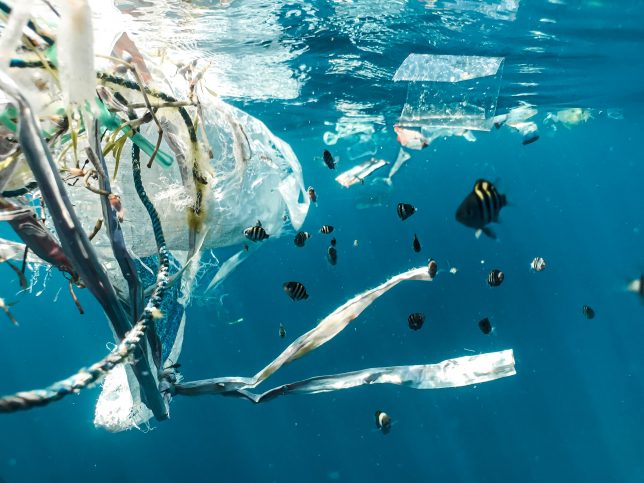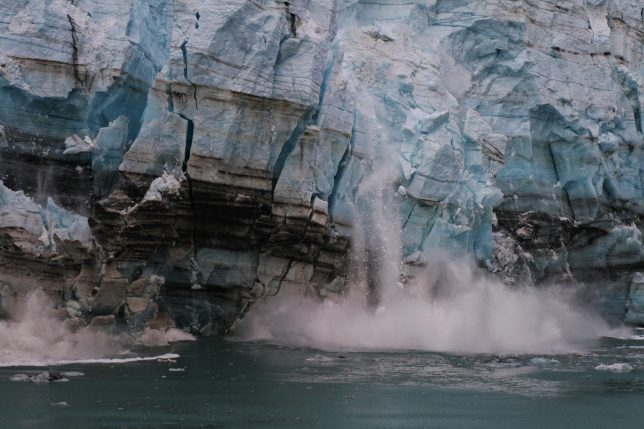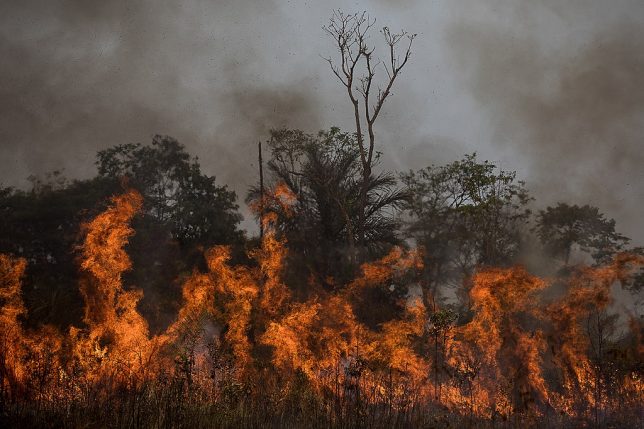
“Plastics are fossil fuels in another form,” said U.N. Secretary-General António Guterres, “and pose a serious threat to human rights, the climate, and biodiversity.”
By Kenny Stancil, Common Dreams
Hours before the first round of negotiations to advance a global plastics treaty concluded Friday in Punta Del Este, Uruguay, the leader of the United Nations implored countries “to look beyond waste and turn off the tap on plastic.”
“Plastics are fossil fuels in another form,” U.N. Secretary-General António Guterres tweeted, “and pose a serious threat to human rights, the climate, and biodiversity.”
Guterres’ comments elevated the demands of civil society organizations, scientists, and other advocates fighting for robust, legally binding rules to confront the full lifecycle impacts of the plastic pollution crisis. A coalition of more than 100 groups has called for limiting the ever-growing production and consumption of plastic and holding corporations accountable for the ecological and public health harms caused by manufacturing an endless stream of toxic single-use items.
Petrochemical industry representatives who attended the first intergovernmental negotiating committee meeting (INC-1) for a global plastics treaty, by contrast, attempted to bolster fossil fuel-friendly governments’ efforts to slow the pace of talks—convened by the U.N. Environment Program and set to continue off-and-on through 2024—and weaken proposals for action.
In the wake of this week’s opening round of debate, the Break Free From Plastic (BFFP) alliance launched a petition outlining what it calls the “essential elements” of a multilateral environmental agreement capable of “reversing the tide of plastic pollution and contributing to the end of the triple planetary crises of climate change, biodiversity loss, and pollution.”
According to experts associated with BFFP, an effective global plastics treaty must include the following:
- Significant, progressive, and mandatory targets to cap and dramatically reduce virgin plastic production;
- Legally binding, time-bound, and ambitious targets to implement and scale up reuse, refill, and alternative product delivery systems;
- A just transition to safer and more sustainable livelihoods for workers and communities across the plastics supply chain; and
- Provisions that hold polluting corporations and plastic-producing countries accountable.
BFFP member Graham Forbes, head of the Global Plastic Project at Greenpeace USA, said in a statement that “we cannot let oil-producing countries, at the behest of Big Oil and petrochemical companies, dominate and slow down the treaty discussions and weaken its ambition.”
“If the plastics industry has its way, plastic production could double within the next 10-15 years, and triple by 2050—with catastrophic impacts on our planet and its people,” said Forbes. “The High Ambition Coalition must show leadership by pushing the negotiations forward and calling for more ambitious measures which protect our health, our climate, and our communities from the plastics crisis.”
A global plastics treaty, Forbes added, represents “a major opportunity to finally end the age of plastic, and governments should not let this go to waste. We demand that world leaders deliver a strong and ambitious treaty that will dramatically reduce plastic production and use, open inclusive and justice-centered discussions, and ensure that the next INCs are free from industry interference.”
Center for International Environmental Law (CIEL) senior attorney Giulia Carlini pointed out that profit-maximizing corporations “have deliberately manufactured doubt about the health impacts” of their products in previous treaties that address health issues, such as the World Health Organization Framework Convention on Tobacco Control.
“There is strong scientific consensus that plastics-associated chemicals cause diseases,” Carlini continued. “If the treaty is to succeed in meeting its health objectives, it will be essential to set strict conflict-of-interest policies going forward.”
After more than 145 governments expressed support this week for developing a pact with specific and shared international standards—which could include a ban on single-use items and requirements to ensure reuse and circularity—Eirik Lindebjerg, global plastics policy lead at the World Wildlife Fund, said that “the momentum demonstrated at these negotiations is a promising sign that we will get a truly ambitious treaty with effective global measures to stop plastic pollution” by 2024.
“It has been a very important week in the history of protecting the environment and people,” said Lindebjerg. “This week we saw an encouraging level of agreement, both in formal and informal spaces, on the urgency of seeking a joint solution to this major threat to nature and communities, and to do so in a comprehensive, effective, inclusive, and science-based manner.”
However, he warned, “this is just the first step towards a legally binding global treaty that can help us stop plastic pollution.”
“The next stage of negotiations will be more challenging, as countries must agree on the technical measures and rules,” said Lindebjerg. “Although in the minority, there are also some powerful opponents of global rules and standards, which risk potentially weakening obligations on countries to take action. The push for an ambitious global plastics treaty has only just begun.”
“Millions of people around the world, whose livelihoods and environments are affected by plastic, have their eyes on these negotiations,” he added. “Now negotiators must harness this momentum to push for specific rules to be negotiated as part of the treaty.”
Lindebjerg’s assessment was shared by other summit delegates.
“Negotiations at INC-1 this week demonstrated that the majority of countries are ready to take urgent action to confront the plastics crisis, including by addressing the plastic production that drives that crisis,” said CIEL president Carroll Muffett. “Sadly, it also proved that plastic producers and their allies are equally committed to slowing progress and weakening ambition—from the U.S. insistence that the plastic treaty replicate the weaknesses of the Paris agreement, to last-minute maneuvers by other fossil fuel and petrochemical states to block countries’ ability to vote on difficult issues.”
“Despite these maneuvers, the world made real progress in Punta Del Este,” said Muffett. Robust “global commitments and binding targets remain both necessary and achievable,” she added, but securing them will require “the U.S. and other countries join the rest of the world in pairing claims of high ambition with the policies that high ambition demands.”
While this week marked the first time that governments have met to hash out global-scale regulations to restrict plastic production, the United States and the United Kingdom—the world’s biggest per-capita plastic polluters—have so far refused to join an international treaty to curb the amount of plastic waste destined for landfills and habitats, though both countries are reportedly now open to the idea.
“Over this week, we have seen multiple interventions raising whether the future treaty will be based on national action plans, or global, mandatory targets,” said CIEL senior attorney Andrés Del Castillo. “We know that this will be top of the agenda at INC-2. The failure of countries to fulfill their emissions reduction plans under the Paris agreement shows that we cannot afford another treaty that centers on the whims of its leaders.”
The next session of the conference aimed at creating a global plastics treaty is set to take place in Paris in May 2023.


